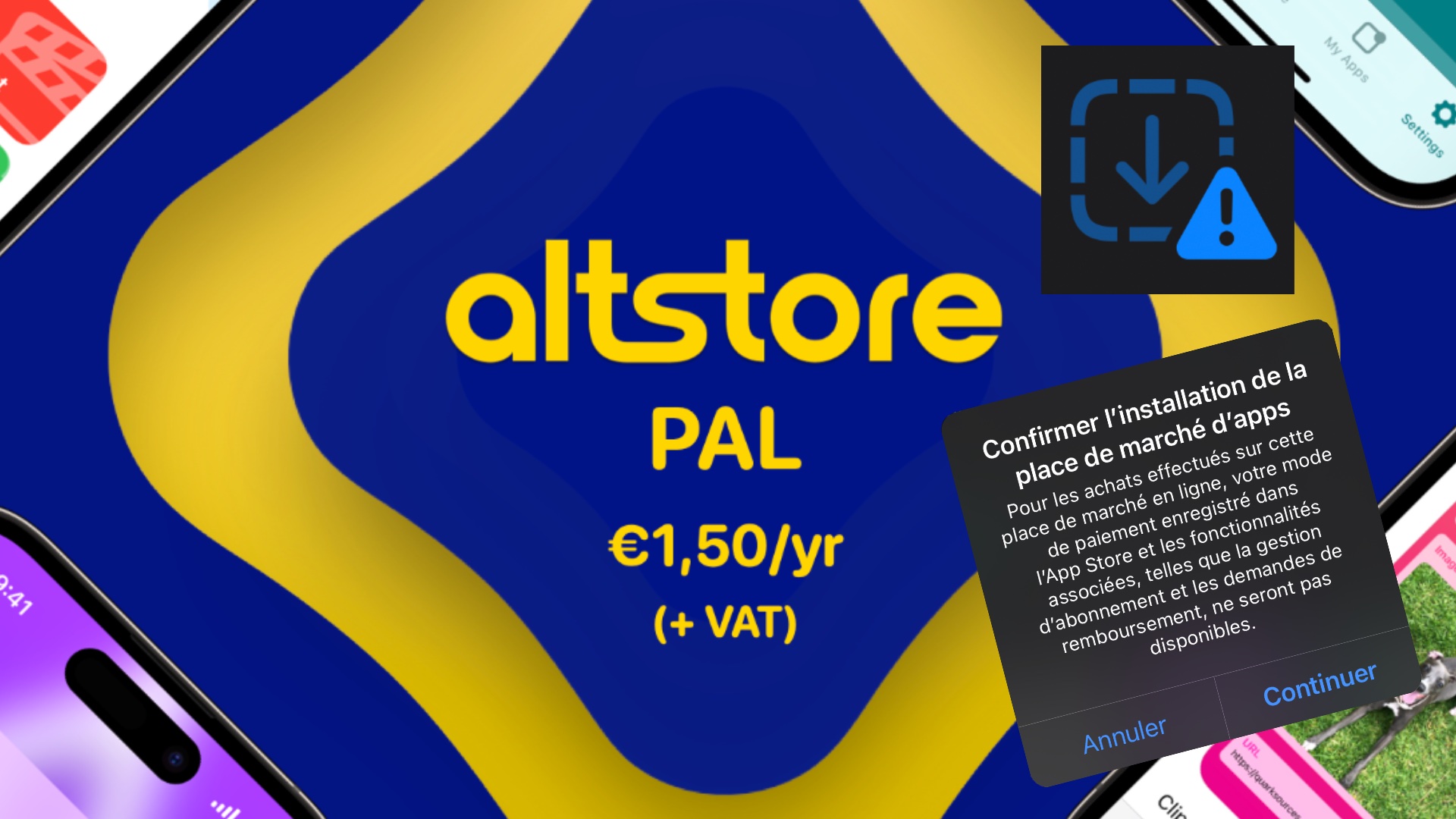The App Store's first competitor is available on iPhones in the European Union. It costs 1.80 euros per year, is limited to two applications for the moment and opens the way to software previously prohibited in the Apple ecosystem.
“A day I've been waiting for for 10 years. » AltStore developer Riley Testut is thrilled. After spending years trying to circumvent Apple's bans with restrictive solutions, the developer known for his passion for emulating Nintendo games just launched the first official App Store competitor.
Advertisement
As of April 17, 2024, iPhone owners who reside in the European Union can install theAltStorea store in which we find applications prohibited by Apple's conditions.
At launch, there are only two apps on the Alt Store. The first is Deltaa multi-console emulator (Nintendo DS, Game Boy, etc.), the second is called Clip, a copy-paste manager capable of analyzing what is happening on the iPhone in the background (Apple prohibits this behavior in its App Store). Ultimately, Riley Testut hopes to attract all small independent developers, with his store which will not charge any commission on subscriptions.
A paid store that is difficult to install: does the AltStore have its chances?
The official name of the first alternative store in the history of the iPhone is AltStore PAL. The application can be downloaded at altstore.io, provided you use Safari and reside in the European Union. Why the EU? Because the Digital Markets Act, the new European regulation, obliges Apple to open the iPhone in our territory, but not elsewhere.
Will the AltStore PAL be a great success? Let's be honest, this seems like a bad start. Riley Testut made an astonishing decision to reimburse Apple's commission (the brand charges 50 euro cents per installation of an alternative store): make its customers pay. The AltStore costs 1.80 euros per year and it is impossible to start the installation procedure before having paid (in some cases, paying even causes a bug and does not even allow the installation to start).
Advertisement
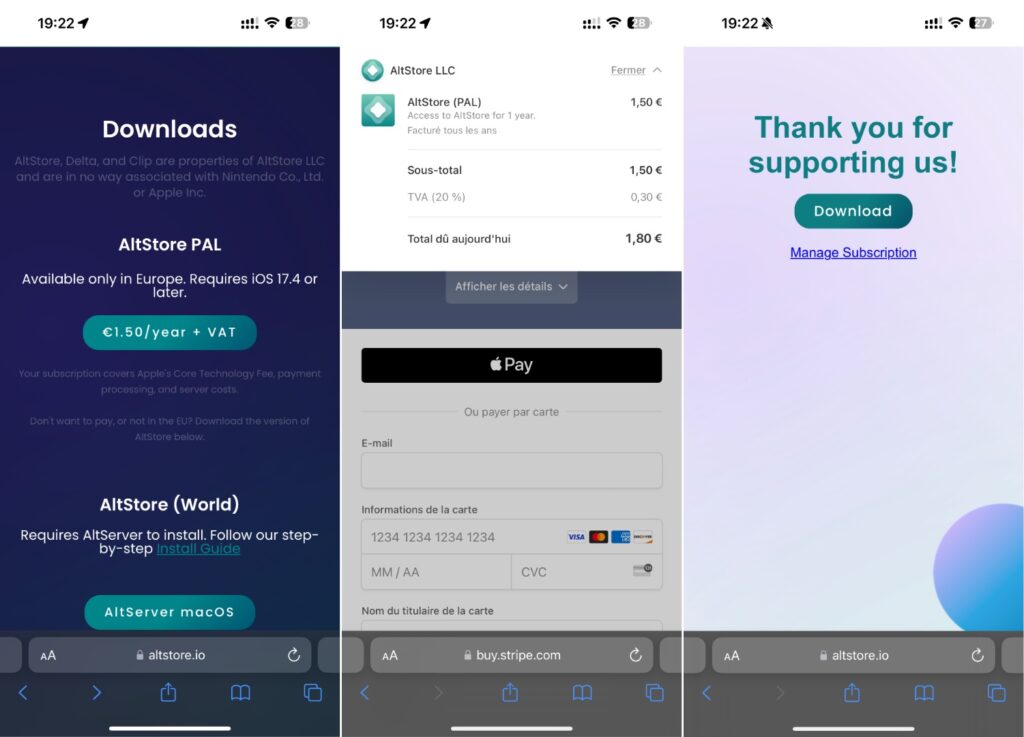
After paying, a download link appears. This is where Apple shows its mischief with a procedure designed to scare novices. It's necessary :
- To touch Download.
- An error message will indicate that “The installation settings on this iPhone do not allow online marketplaces by AltStore, LLC to be installed from the web”then touch OK.
- Open the application yourself Settings.
- To touch Authorize the online marketplace.
- Go back to Safari and tap Download.
- Click on To allowafter reading a somewhat scary page about the risks of third-party stores.
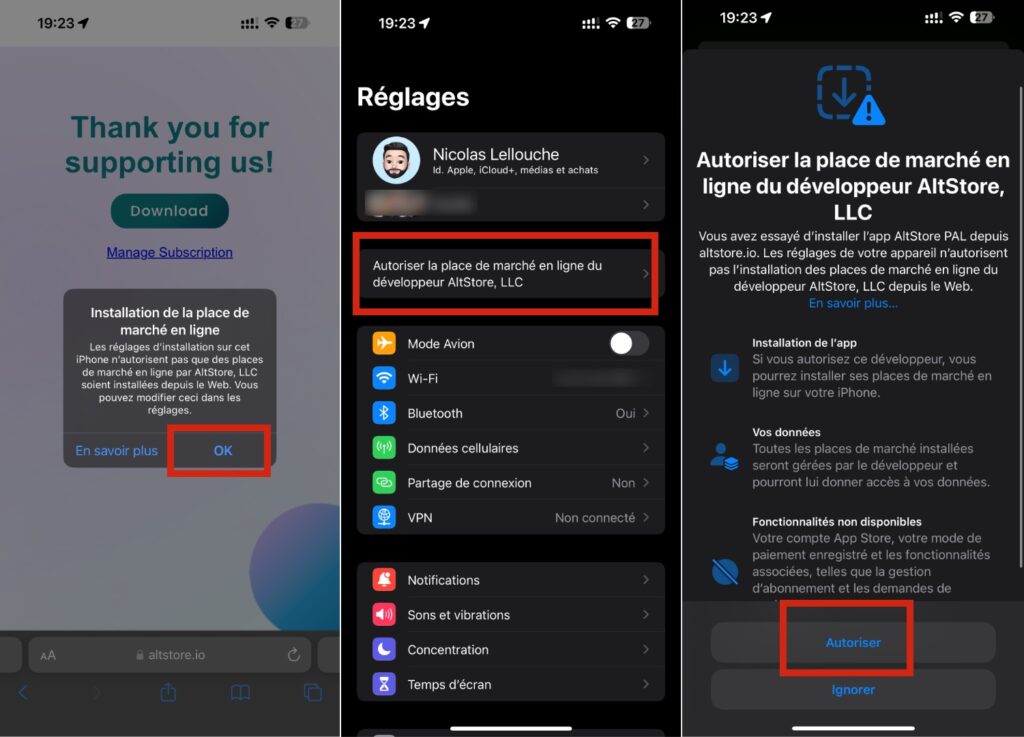

- To touch Install the App Marketplace when the AltStore is offered.
- To push on Continue when Apple asks if we're sure.
- Go to the home screen to launch the AltStore.
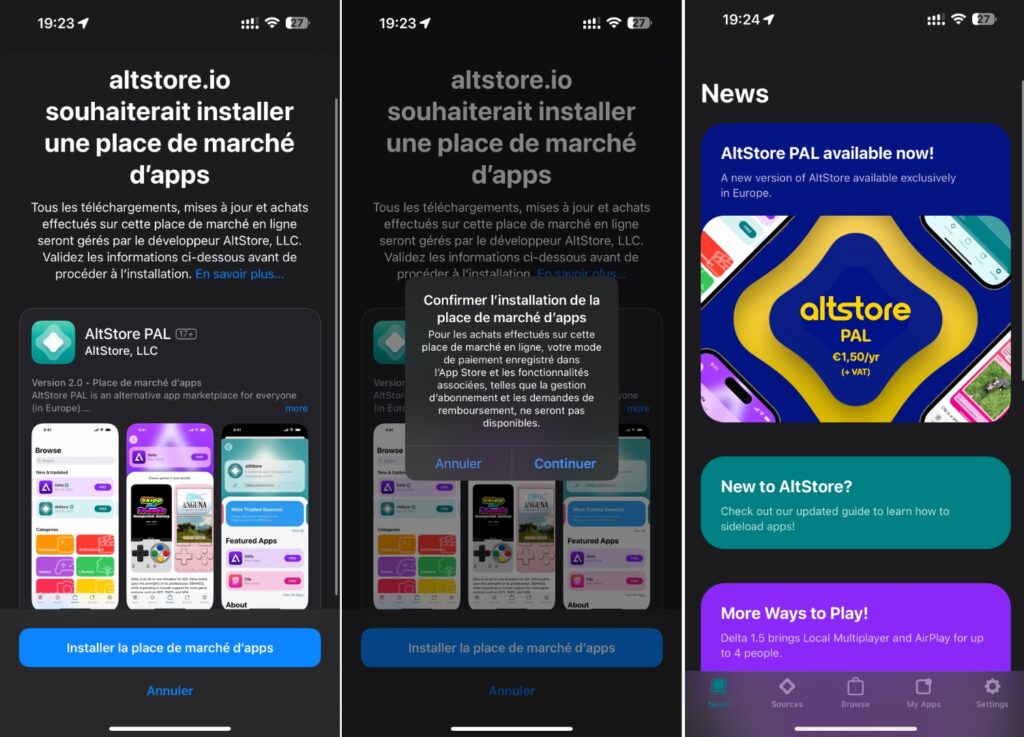

After doing all this, the AltStore will appear on the home screen. Some people could give up along the way, especially since compulsory payment creates an unprecedented obstacle (a free application system, with payment inside, would have been more incentive). The AltStore strangely does not allow you to create an account, which makes canceling the subscription impossible for the moment (or installing it on another device).
In a way, the AltStore is the perfect illustration of Apple's discourse on alternative stores. It's not as easy to control as the App Store and offers less transparency over payments. In short, this is exactly what Apple wanted with its restrictive system.
Two applications for now, but very good promises
Once in the AltStore, you have access to a classic interface for a store. A “My applications” tab is dedicated to updates, which is rather good news. Moreover, in the iOS settings, a new “App installation” menu appears. It allows you to manage AltStore permissions.
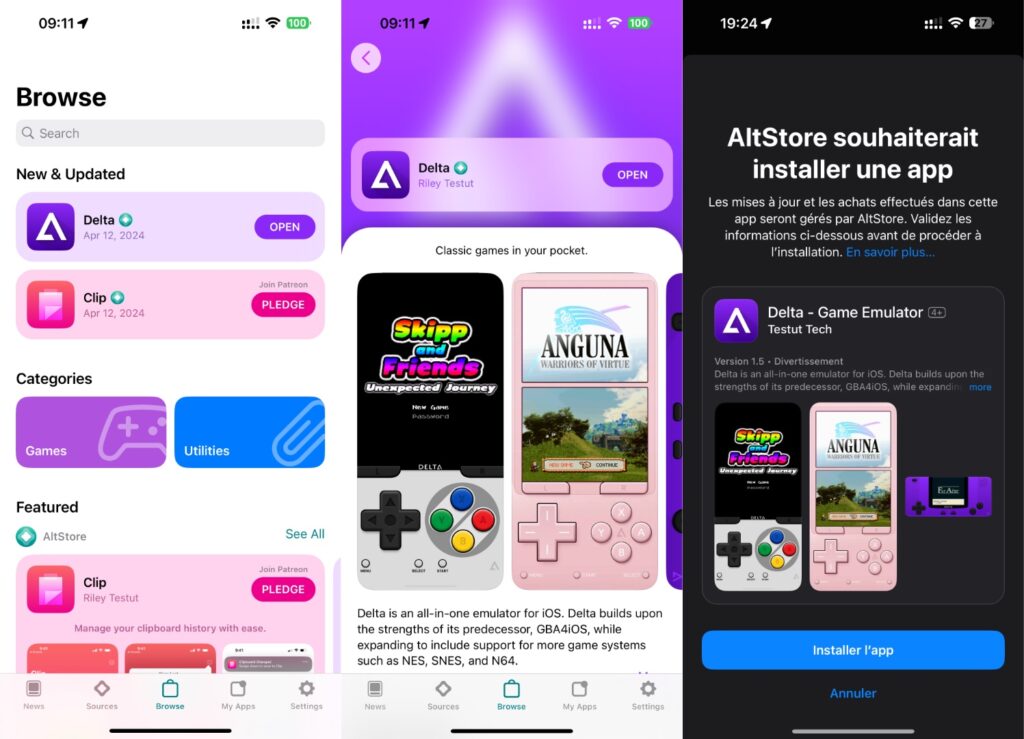

At the moment, the choices are very limited. Delta is free and allows you to try the emulation on iPhone (but it is also available for free on the App Store outside the European Union, which makes the compulsory payment of 1.80 euros in Europe a little hard to do digest). Clip is paid. The AltStore relies on Patreon for users to make whatever donation they choose.
In the medium term, Riley Testut hopes to welcome other applications to its store. He cites in particular OldOS, an application which allows you to emulate iOS 4 on recent iPhones. UTM, which allows you to create a Windows virtual machine, is also cited. This software is banned on the App Store, unlike the Delta emulator.
Note that it is impossible to install IPA files manually, since Apple requires third-party developers to submit their applications to it to verify that there are no viruses. It does not control the content (pornography is possible on the AltStore), but must give the green light before any installation, including outside the App Store.
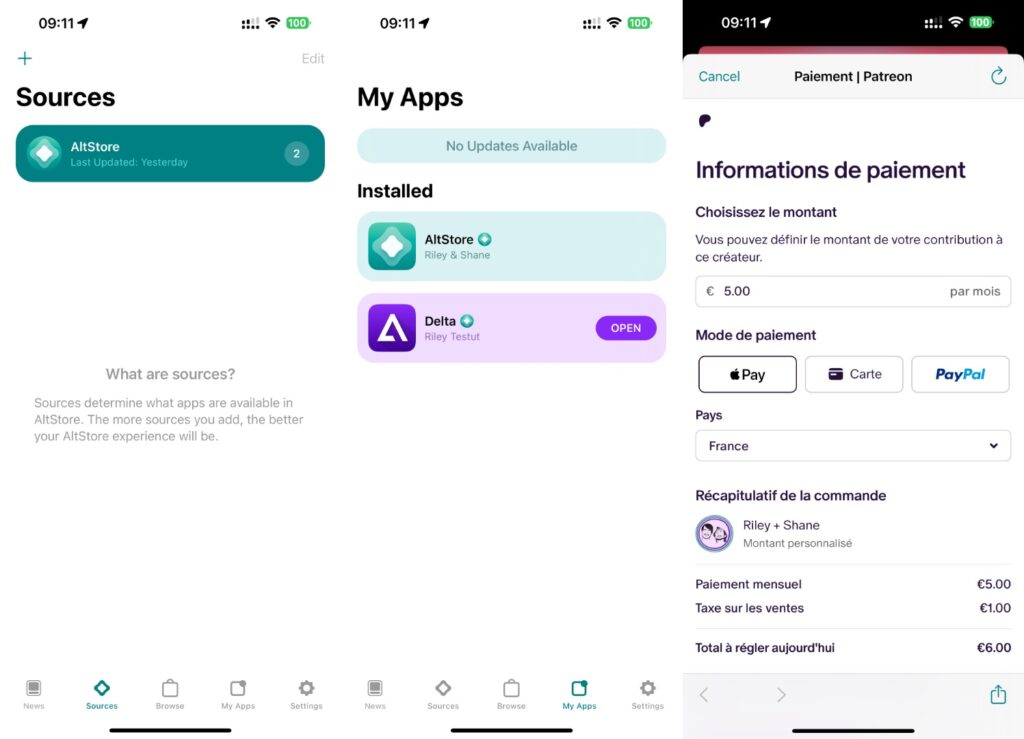

The target of the AltStore is quite easy to guess: geeks. The store is aimed at people looking for hack applications, while being ready to pay 1.80 euros per year for a competitor to the App Store (without the possibility of unsubscribing for the moment). Stores like that of Epic Games, for downloading Fortnite, will be more successful (even if they will be just as complicated to install).
The arrival of the AltStore comes with a question: will Europeans have to install several stores for the same applications as today? The fact that Riley Testut, despite being in favor of open source, reserves his emulator for his own store in the European Union creates an astonishing precedent. Could the DMA backfire on users? Or just offer them more choice, as Europe hopes?
